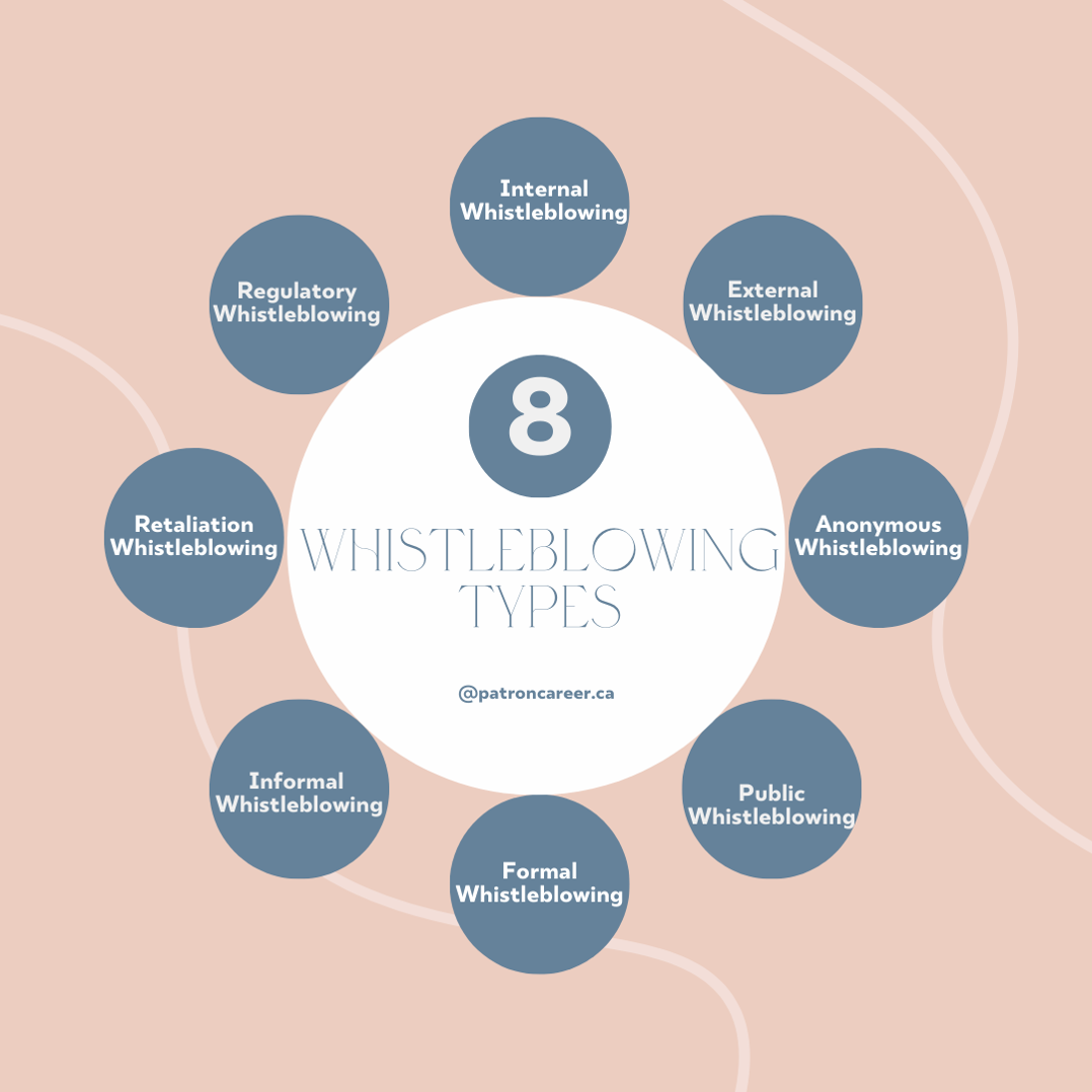
Payroll Solutions
25 July, 2023
Patron Career Staffing firmly believes in adopting a tailored approach to meet temporary and permanent recruitment needs. We safeguard the interest of our clients by finding such workers who are knowledgeable and reliable.
About UsNeed help? Make a Call
32 Dundas Street East Unit A, L5A1W2

Safeguarding your business from internal misfortunes is as much important as protecting the business’s interest from outside threats. Therefore, knowing and encouraging employees to report issues and ways to encourage internal whistleblowing amongst employees and those showing signs of unethical behaviour.
This blog will take you into the core of the term whistleblowing, and its importance in current business scenarios and suggest a variety of strategies to support internal whistleblowing. Additionally, we will also look into the barriers that hinder this vital process.
The Emerging Trend of Internal Whistleblowing
Internal whistleblowing is the act of reporting suspected employees who show signs of awry from stipulated ethical standards within their organization to the appropriate authorities, often through established channels like a hotline or designated contact. This practice has gained impetus across Canada as businesses recognize the significance of early detection and intervention in preventing potential damage.

Why Internal Whistleblowing is Important
1. Fraud Detection and Prevention
Internal whistleblowers can act as the first line of defence against fraud, helping to identify irregularities in financial reporting or unethical practices before they escalate.
2. Safeguarding Reputation
Addressing issues internally before they become public can protect an organization's goodwill and brand image from irreparable harm.
3. Regulatory Compliance
In many industries, adhering to strict compliance and regulatory requirements is critical. Whistleblowing culture can aid in ensuring businesses meet these standards.
Encouraging whistleblowing demonstrates a commitment to a safe and fair work environment, fostering trust among employees and promoting a positive corporate culture.
Recent Upload: The Transformative Role of Payroll in the Workplace
Ways to Encourage Internal Whistleblowing
Herein we discuss ten important tips for the top management to promote a whistleblowing culture amongst the workforce and to prevent workplace crimes before they occur.
1. Develop Comprehensive Whistleblowing Policies
Create well-defined policies that clearly outline the whistleblowing process, including reporting channels, confidentiality measures, and protection against retaliation.
2. Establish Anonymous Reporting Channels
Offer secure and confidential reporting channels, allowing employees to raise concerns without fear of identification or reprisals.
3. Conduct Regular Whistleblowing Training
Educate employees on the importance of whistleblowing, how to identify potential issues, and the steps for reporting concerns through regular training sessions.
4. Provide Legal Protections
Ensure that employees who come forward with valid concerns are legally protected from retaliation, dismissal, or any form of discrimination.
5. Foster a Supportive Corporate Culture
Cultivate an environment that values integrity, open communication, and ethical behaviour. Leaders should set an example by actively encouraging and supporting whistleblowing.
6. Reward Whistleblowers
Recognize and reward employees who demonstrate courage in reporting concerns, whether through financial incentives or acknowledgement in company-wide communications.
7. Engage an External Whistleblowing Service
Consider partnering with an independent third-party service to receive and manage whistleblowing reports. This can enhance confidentiality and objectivity.
8. Conduct Anonymous Surveys
Periodically conduct anonymous surveys to assess employee perceptions of the company's commitment to whistleblowing and identify any barriers to reporting.
9. Share Success Stories
You should try to share success stories of how whistleblowing has led to positive outcomes, such as preventing fraud or misconduct, to encourage others to follow suit.
10. Include Whistleblowing in Performance Evaluations
Consider incorporating whistleblowing behaviour as a positive aspect of employee performance evaluations, highlighting the importance of ethical reporting.
Also read: Factors That Strongly Influence Employee Departures
Barriers to Whistleblowing

Despite the benefits, several factors can deter employees from blowing the whistle:
1. Fear of Retaliation
Employees may fear reprisals or negative consequences if they come forward, potentially harming their career or personal well-being.
2. Lack of Trust
A lack of faith in the confidentiality of the reporting process can prevent employees from speaking up.
3. Bystander Effect
When multiple employees witness the same misconduct, the diffusion of responsibility may lead to no one taking action.
4. Organizational Loyalty
Employees may hesitate to report misconduct if it involves a colleague, they are loyal to or if it reflects poorly on the organization.
Discover more blogs at: https://patroncareer.ca/blog.html
Conclusion
Remember encouraging internal whistleblowing is essential for any Canadian business aiming to foster a culture of honesty, transparency, and accountability. By implementing clear policies, ensuring anonymity, providing the right training, and creating a supportive environment, organizations can empower their employees to be wary guardians of ethical standards. Remember, a successful whistleblowing program not only protects the company but also empowers employees to play an active role in upholding the values that define the organization's identity. Let's work together to create a better, safer, and more ethical Canadian business landscape.
